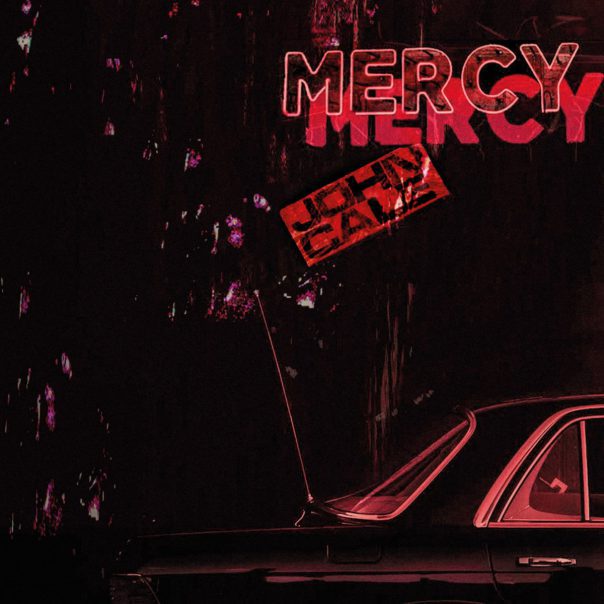ALBUM REVIEW: John Cale lights the way on ‘Mercy’

John Cale, “Mercy.”
John Cale‘s musical life has divided itself between rock and roll and the avant-garde. The Velvet Underground founder and droner-in-chief’s latest album, Mercy, feels more like the minimalist compositions of La Monte Young than VU’s rollicking and raucous “Sweet Jane.” But at 80, that’s probably to be expected from Cale and his 17th solo album. And, given the state of the world, it also isn’t surprising that the album is a somber and moody affair full of gauzy synthesizers and oblique political commentary.
Mercy
John Cale
Domino, Jan. 20
8/10
Get the album on Amazon Music.
For the most part, Cale’s vocal style is equal parts Tony Bennett and Gregorian Chant: mournful and moody, but also rich, soulful and clearly having a good time. “Noise of You” shimmers over a spacey drumbeat and a groovy bass line as Cale sings, “Bells ring out, the snow falls/ The choir is finishing its song/ Your footsteps on the stairs, meet at the River House /To say goodbye, to say goodbye/ Was the noise of you, was the noise of you.”
It would be an absolutely fascinating sociological experiment to play this album at a moderate volume over the PA system of a Walmart in rural America. I’m not sure what the clientele would do, but I’m sure they’d notice, after a while. John Cale makes elevator music for some amazing parallel universe where David Bowie is President of the United States of America. On “Marilyn Monroe’s Legs (Beauty Elsewhere),” diaphanous synthesizers ooze underneath bleeps and bloops within a cavernous dreamscape. Imagine the sonic opulence of Dead Can Dance trapped in amber.
“Story of Blood” features singer-songwriter Weyes Blood, one of many fruitful collaborations on the record. Natalie Mering offers up some background vocals on one of the more upbeat songs on the album with a soupçon of hip-hop in its keyboard stabs and heavy drum and bass. Another one of the livelier tracks on the album is “Everlasting Days,” which features Baltimore’s Animal Collective. Strings and percussion filigree the two-chord vamp.
One of the album’s selling points is Cale’s artistry in the subtlety of his political digs.
“What is the legal status of ice?/ Where does it come and where does it go?/ Floats on top with vanilla/ Liquor in the bottom/ I don’t know,” he sings on “Legal Status of Ice.” The pointed symbolism and language owe as much to Langston Hughes’ poetry as they do to David Bowie.
On the album’s opener and title track, Cale sings, “Lives do matter/ Lives don’t matter/ Wolves getting ready/ Wolves getting ready/ They’re gonna buy more guns/ Rolling around in the snow and the mud/ Lights exploding above.” When much of the political rhetoric in popular culture today has the nuance and subtlety of a hockey brawl, Cale’s barbed critique feels downright sophisticated.
Other high points include “Time Stands Still,” Cale’s collaboration with electro-pop duo Sylvan Esso, which juxtaposes sparse acoustic guitar with a throbbing bass drum, and “I Know You’re Happy” featuring Tei Shi, a Colombian-Canadian singer-songwriter who gives voice, in the final moments, to the song’s titular ecstasy.
In a cooler world, John Cale and albums like Mercy would occupy the cultural space currently inhabited by schmaltzy balladeers like Michael Bolton and Adele, whose sonic pablum is a salve for the human condition rather than a crucible for self-reflection and improvement. Mercy could be NPR between-song music if we all finally started microdosing as a society. In fact, the album’s artistry makes a pretty good argument for tuning in while we’re turning on and dropping out.
Follow writer David Gill at Twitter.com/saxum_paternus.
